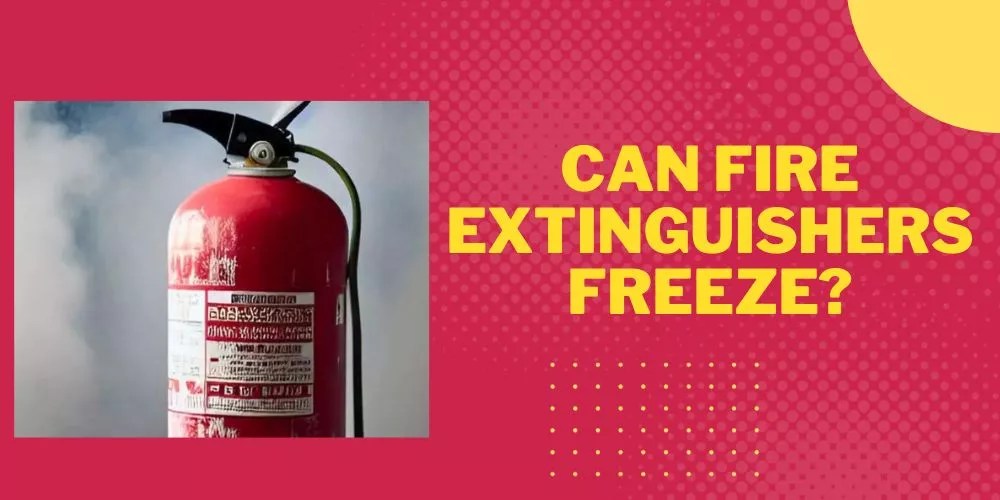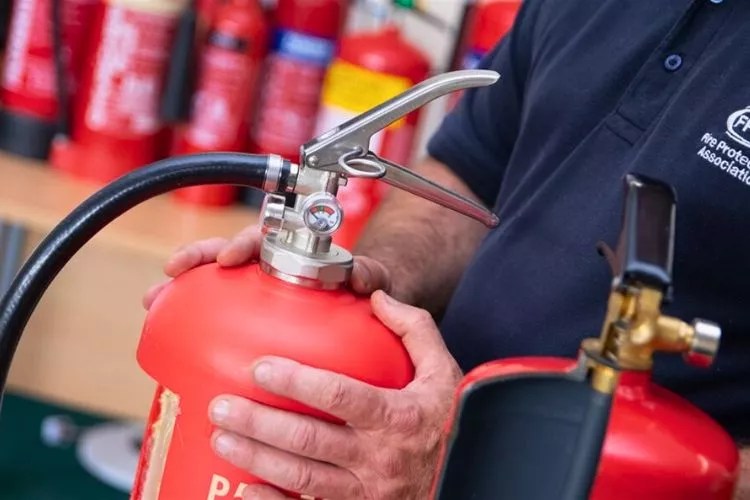When it comes to fire safety, understanding the functionality of fire extinguishers is crucial, especially in extreme weather conditions. One common concern that homeowners and business owners alike face is whether fire extinguishers can freeze. This article will delve into the factors that influence the freezing of fire extinguishers, the potential consequences, and how to ensure that your fire safety equipment remains effective, even in frigid temperatures.
Fire extinguishers are essential safety devices that can save lives and property in the event of a fire. However, they are not immune to environmental conditions. In areas where temperatures drop significantly, the risk of fire extinguishers freezing can become a pressing issue. Understanding the impact of cold weather on these devices is vital for ensuring that they function properly when needed.
This article will explore various aspects of fire extinguishers and the conditions that can lead to freezing. We will discuss the types of fire extinguishers available, how temperature affects their performance, and provide tips on how to protect your fire safety equipment from freezing temperatures. By the end of this article, you will have a comprehensive understanding of whether fire extinguishers can freeze and what measures you can take to maintain their effectiveness.
Table of Contents
- What Are Fire Extinguishers?
- Types of Fire Extinguishers
- How Temperature Affects Fire Extinguishers
- Can Fire Extinguishers Freeze?
- Consequences of Freezing
- Preventing Freezing
- When to Replace Fire Extinguishers
- Conclusion
What Are Fire Extinguishers?
Fire extinguishers are portable devices designed to extinguish or control small fires. They contain an extinguishing agent, which can vary depending on the type of fire extinguisher, and are operated by users to suppress flames before they escalate into larger, uncontrollable fires. Fire extinguishers are classified based on the type of fire they are designed to combat, and their effectiveness is critical in emergency situations.
Types of Fire Extinguishers
There are several types of fire extinguishers, each designed to combat different classes of fires:
- Class A: For ordinary combustibles such as wood, paper, and cloth.
- Class B: For flammable liquids like gasoline, oil, and grease.
- Class C: For electrical fires caused by live wires and equipment.
- Class D: For combustible metals such as magnesium and sodium.
- Class K: For kitchen fires involving cooking oils and fats.
Each type of extinguisher contains a specific extinguishing agent suitable for its designated class of fire, and understanding these differences is crucial for effective fire management.
How Temperature Affects Fire Extinguishers
The performance of fire extinguishers can be significantly impacted by temperature fluctuations. Most fire extinguishers are designed to operate within a specific temperature range, typically between 40°F (4°C) and 120°F (49°C). When temperatures fall below this range, particularly in freezing conditions, the contents of the fire extinguisher may be compromised.
Effects of Cold Temperatures
Cold temperatures can lead to several issues:
- **Freezing of the extinguishing agent:** Certain types of agents, like water-based solutions, can freeze, rendering the extinguisher ineffective.
- **Pressure loss:** Low temperatures can cause the internal pressure of the extinguisher to drop, impacting its ability to discharge effectively.
- **Physical damage:** Extreme cold can cause the materials of the extinguisher to become brittle, increasing the risk of cracks or leaks.
Can Fire Extinguishers Freeze?
Yes, fire extinguishers can freeze, particularly those that contain water-based agents. When the temperature drops below the freezing point, the liquid inside the extinguisher can solidify, making it impossible to discharge the agent when needed. This is a significant concern for fire safety in regions where temperatures can plummet.
Factors Influencing Freezing
- Type of extinguishing agent: Water-based agents are more susceptible to freezing than dry chemical agents.
- Environmental conditions: Fire extinguishers stored in unheated areas are at a higher risk of freezing.
- Manufacturing quality: Higher-quality extinguishers may have better insulation and pressure retention capabilities.
Consequences of Freezing
If a fire extinguisher freezes, the consequences can be severe:
- Inoperability: A frozen extinguisher cannot be used to combat fires, which can lead to disastrous outcomes.
- Increased risk: The presence of an ineffective fire extinguisher may give users a false sense of security.
- Costs: Replacing or repairing damaged extinguishers can be costly for businesses and homeowners.
Preventing Freezing
To ensure that your fire extinguishers remain functional in cold weather, consider the following preventive measures:
- Store in a heated area: Keep fire extinguishers in locations that are protected from extreme cold, such as heated garages or buildings.
- Use appropriate extinguishers: In cold environments, opt for dry chemical extinguishers that are less likely to freeze.
- Regular inspections: Conduct routine checks to ensure extinguishers are fully charged and in good working condition.
When to Replace Fire Extinguishers
Fire extinguishers have a limited lifespan, and it's crucial to know when to replace them:
- Check the manufacturer's expiration date, typically every 5 to 15 years.
- Inspect for physical damage, such as dents, rust, or leaks.
- Ensure the pressure gauge reads in the green zone; if it's not, the extinguisher may need to be recharged or replaced.
Conclusion
In conclusion, understanding whether fire extinguishers can freeze is essential for effective fire safety management, especially in colder climates. Fire extinguishers can freeze, particularly those with water-based agents, leading to potential inoperability during a fire emergency. By taking proactive measures to store extinguishers in heated environments, using appropriate types, and conducting regular inspections, you can ensure that your fire safety equipment remains dependable when it matters most.
We encourage you to leave a comment with your thoughts or share this article with others who may benefit from this information. Additionally, explore more articles on fire safety and prevention on our site.
Thank you for reading! We look forward to seeing you again on our site for more valuable insights.
You Might Also Like
How To Get Rid Of Bees And Wasps In Bushes: Effective Strategies For A Pest-Free GardenExploring The Lives Of Celebrities Who Have Openly Discussed Anal Sex
Understanding 1.89cm In Feet: A Comprehensive Guide
Best Non-Beach Vacations: Discovering Amazing Getaways Beyond The Shoreline
Ultimate Guide To Popcorn Seasoning: Transform Your Snack Game
Article Recommendations
- Toy Robot Dogs
- Medicated Shampoo For Scabs On Scalp
- Wicker Outdoor Furniture
- Take For Granted
- Feline Mouth Cancer
- 8 Inch Stacks For 379 Peterbilt
- Which Terminal Is Delta At Jfk
- Terminator Genisys Cast
- Is It Worth Getting Iphone 15 Over 14
- Mackenziecott Height


